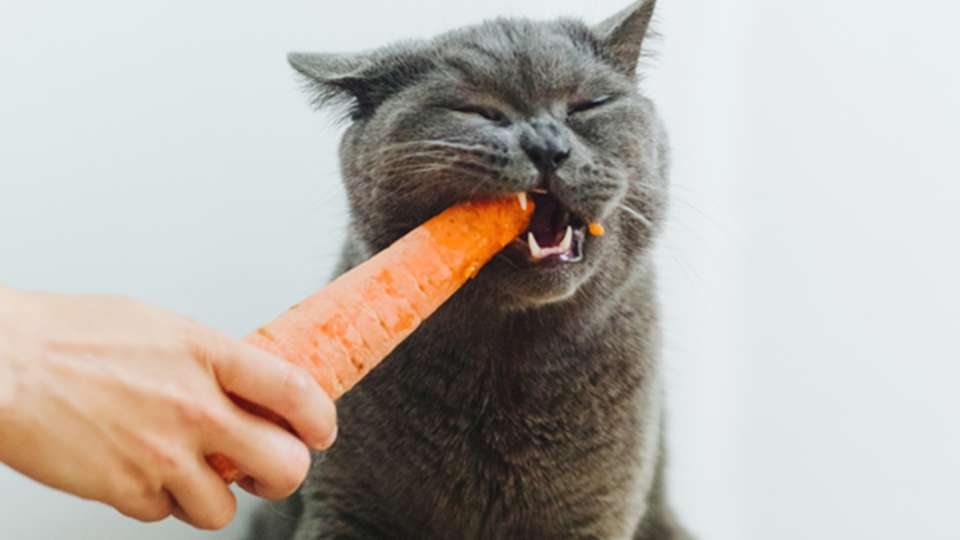
It seems like a new food villain crops up every day. One day processed foods are bad for you, the next it’s sugar, then salt, then red meat.
Eliminating seemingly harmful foods is at the core of many popular diets, like veganism or the paleo diet. But is that really necessary?
“Dietitians usually warn people against diets that exclude certain food groups unless there are medical reasons to avoid them,” says Francesca Simonella, R.D., a clinical dietitian at Harborview Medical Center. “It’s good to think of foods as a variety of options that are all good.”
Nonetheless, there are health benefits to certain ways of eating versus others. If you’re considering trying a new diet—or simply want to change your eating habits—it can be hard to figure out what is right for you. We asked Simonella what about some of the pros and cons of popular diets to help you make an informed decision.
Vegan Diet
The fine print: All animal products—even things like honey and eggs—are off limits.
The pros: Since vegans don’t eat meat, milk or eggs, they consume less saturated fat—though there may be benefits (or, at least, not much harm) to consuming small amounts of saturated fat, new research shows. Veganism may help lower blood pressure and prevent diabetes development.
The cons: Protein intake can be an issue for vegans, Simonella says. Since vegans don’t eat many conventional sources of protein (like red meat), they should make sure they’re getting enough from other foods, such as soy. It’s also important for vegans to take a vitamin B12 supplement, a nutrient only found naturally in animal products. “It’s not necessarily a problem if vegans consult with dietitians,” Simonella says.
Vegetarian and Pescatarian Diets
The fine print: Vegetarians forego all meat, while pescatarians eat fish, but not read meat or poultry.
The pros: Like veganism, a vegetarian diet can lower someone’s risk for chronic disease. If you’re vegetarian, you likely eat more fruits and vegetables and benefit from all the fiber, vitamins and minerals they contain. Pescatarians may also have a higher intake of healthy fats from fish and lower intake of saturated fat in meats like beef and chicken.
The cons: Vegetarians and pescatarians should make sure they’re getting enough protein, iron, zinc, calcium and vitamin B12. In the past, doctors used to think vegetarian diets were lacking in these nutrients, but that can be avoided by sufficient meal planning, Simonella says.
The Paleo Diet
The fine print: Followers of this diet emulate the dietary pattern of our ancestors by emphasizing fresh foods and avoiding processed foods. Legumes, dairy and grains are excluded.
The pros: A paleo diet can promote the intake of healthy fats, vitamins and minerals, and a recent study showed that it may have short-term cardiovascular benefits (though this point is contested).
The cons: What exactly paleo means can differ from person to person, Simonella says, which makes the diet difficult for researchers to define and study for potential health benefits. Also, the exclusion of legumes, dairy and grains means people may not get enough fiber, calcium and vitamin D.
Mediterranean Diet
The fine print: This diet follows the traditions of some Mediterranean countries by focusing on olive oil, vegetables, fruits, nuts and seeds, beans, whole grains and some dairy products.
The pros: The diet is low in saturated fat and involves a lot of fresh foods, since it requires cooking your own meals. Many studies have shown it can help prevent everything from diabetes to cardiovascular disease to cognitive decline.
The cons: Having to buy fresh ingredients for meals can get expensive and cooking regularly is time-consuming. Plus, the diet can put too much emphasis on oils and other things that should be consumed in moderation—like wine. “It’s possible to have too much of a good thing,” Simonella says.
The Raw Food Diet
The fine print: This diet encourages the consumption of raw fruits, vegetables and dairy products along with avoidance of processed and cooked foods.
The pros: There are some nutrients in plants, such as vitamins B and C, that can’t withstand high temperatures during cooking, Simonella says. Eating raw fruits and vegetables helps preserve more of their nutritional value.
The cons: Cooking increases the availability of some antioxidants that are thought to promote longevity, Simonella says. Additionally, cooking destroys harmful bacteria that can make you sick. Simonella urges people with weakened immune systems to avoid unpasteurized dairy products and juices.
The Whole30
The fine print: For 30 days, people are encouraged to cut out grains, dairy, legumes, alcohol and added sugars and sweeteners from their diet.
The pros: Eating whole foods with few ingredients is generally a good thing, Simonella says. The diet also doesn’t focus on calorie intake the way many fad diets do.
The cons: The diet supposedly helps you identify foods that may bother you—a kind of self-administered elimination diet. However, since a doctor isn’t helping you determine what to eliminate and for how long, the diet’s schedule isn’t scientific. By completely cutting out grains, dairy and beans, people are missing out on important nutrients, and unless they have an allergy or sensitivity to any of these food items there is no medical reason to eliminate them completely. “It promotes a black-and-white approach to nutrition,” Simonella cautions.
Juice Cleanses
The fine print: A juice cleanse is a short-term, liquid-only diet. Proponents say it helps clear the body of toxins. Practices vary, but typically the goal is to replace at least two meals a day with smoothies, juices or soups.
The pros: It could encourage people to eat more fruits and vegetables—albeit in liquid form, Simonella says.
The cons: Liquefied fruits and vegetables don’t contain the fiber whole ones do, so people might have a hard time feeling full. The premise of the diet is faulty, too, Simonella says. Since our bodies automatically clear out toxins via our liver and kidneys, there is no need to “detox,” as long as these organs are working normally. “There is little or no evidence that we need cleanse programs,” she says.
Intermittent Fasting
The fine print: The idea behind this diet is that alternating periods of eating and fasting can increase your body’s resistance to stressors and slow your metabolism.
The pros: People are encouraged to eat more fruits, vegetables and other health-promoting foods during eating periods, and reducing overall calorie intake could increase longevity, though the science behind this concept is a bit unclear. The diet may help with weight loss.
The cons: Our bodies adapt to periods of starvation and burn fewer calories, Simonella says—similar to the way a bear’s body slows down during hibernation. This contradicts the diet’s premise—so it may not work at all, she says. Additionally, while fasting has been shown to be beneficial in animal studies, its benefits to humans are negligible.
No matter how you eat, remember the choice is ultimately yours.
“The most important thing for me is to help people make their own choices,” Simonella says. “What I try to do is present evidence-based information without bias. Every diet has pros and cons—it is more about tailoring healthy eating to the individual.”

The Bottom Line
Simonella has a few additional tips before you try a new diet:
- Recognize that your social life could be impacted. Since social gatherings regularly involve food, it might prove difficult to find food that conforms to your diet when you go to a catered event or meet friends at a restaurant.
- Consider time and money: Diets that require specific foods can be more expensive, as can prepackaged foods that adhere to certain diet tenets. On the other hand, preparing everything yourself can be time-consuming.
- Eat for health, not appearance: Eating food that promotes your health and wellbeing is important, but stressing yourself out about eating a few extra calories over your daily allotment defeats the purpose. People who feel compelled to diet for weight loss are more likely to have an unhealthy relationship with food and may not achieve their goals.
- Don’t deprive yourself, but don’t overindulge either. It’s important to find balance in how you eat so you aren’t alternating between periods of overeating or starving yourself.

 Healthy ideas for your inbox
Healthy ideas for your inbox





